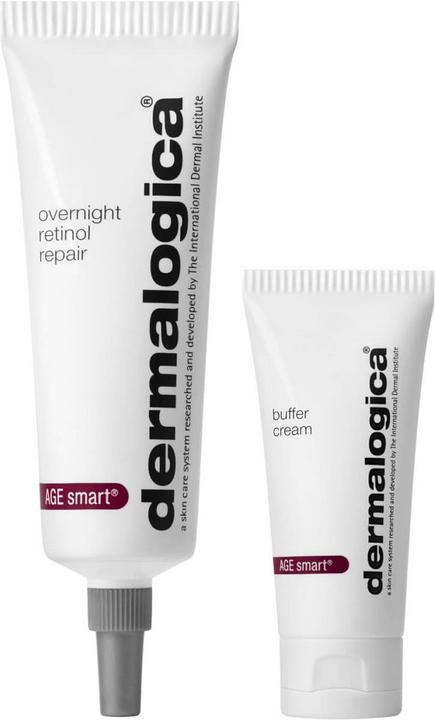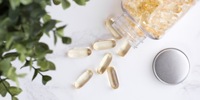

Dumbbell training for the skin
The active ingredient retinol is considered an anti-ageing miracle cure and is an ingredient in many skincare products. I asked a dermatologist what it is all about and what you need to look out for when using it.
Retinol is said to have a positive effect on the appearance of our skin. What exactly does the active ingredient do to our skin and how do you use it correctly? Dr Liv Kraemer is a dermatology specialist and has the answers to my questions.
What is retinol anyway?
Dr Liv Kraemer, dermatology specialist, skincare and skinfood expert:
Retinol is derived from vitamin A. You have to imagine it like this: Vitamin A has many children. One of them is retinol, which in turn has many children. So there are different types of retinol, which act differently in the skin cells.
What would those effects be?
You can think of retinol as "dumbbell training" for the skin. If used incorrectly, you can cause damage. When used correctly, it is one of the best anti-ageing ingredients alongside fruit acids. Certain retinol compounds boost collagen production, increase the elastic fibre content and even the production of hyaluronic acid. This makes your skin firmer. Important to know: When you increase production in the lower layers of the skin, more cells are shed on the surface. Your skin exfoliates, which makes it feel dry. But it is not. It's just the dead cells that come off in the form of flakes.
What do I need to look out for when using the product?
Most freely available retinols are very mild and have a correspondingly lighter effect, so they do not require much explanation. The strong ones require a prescription. They are usually used in the form of tablets to combat acne. The stronger the effect, the better you need to be informed by your dermatologist. Regardless of the strength of the retinol, you should always use it in the evening after washing your face. I recommend not applying another cream afterwards so that you don't smear the retinol in areas that you don't want to include. For example, your eyelid. Creams have no place there anyway. However, the most important thing is that you use sun protection the following day because your skin is more sensitive than usual. Otherwise you will do more harm than good. The earlier you start, the better.
The more retinol a product contains, the more effective it is
. No, this has nothing to do with the proportion or amount of retinol in a product, but with the biochemical compounds of retinol. Precursors of this active ingredient, called retinol esters, are also often found in products. These have a lesser effect than retinol and are less irritating to the skin. You can recognise them by names such as retinyl linoleate, retinyl palmitate or retinaldehyde.
Next time in focus: fruit acid. Click on the black "Follow author" button next to my profile and you won't miss the article. You can follow not only me, but also Dr Liv here.
As a massive Disney fan, I see the world through rose-tinted glasses. I worship series from the 90s and consider mermaids a religion. When I’m not dancing in glitter rain, I’m either hanging out at pyjama parties or sitting at my make-up table. P.S. I love you, bacon, garlic and onions.
Practical solutions for everyday problems with technology, household hacks and much more.
Show all



